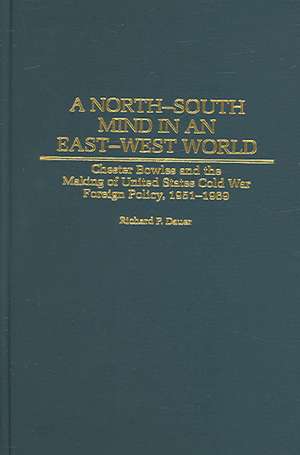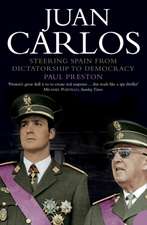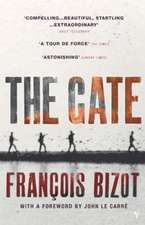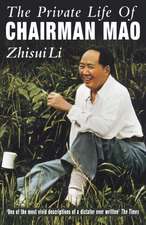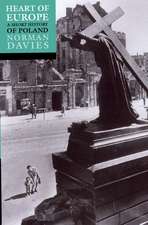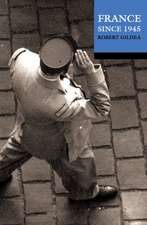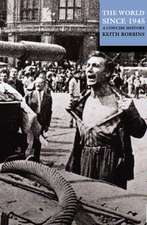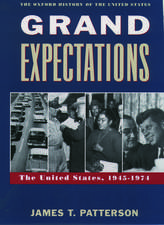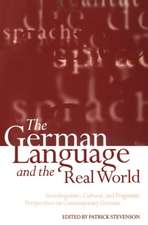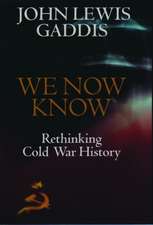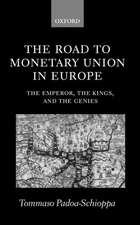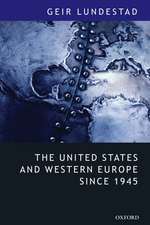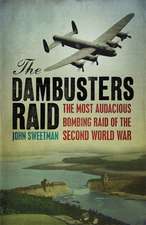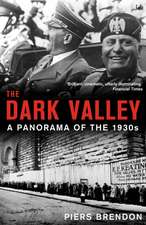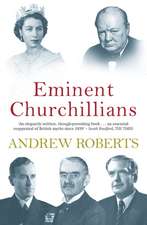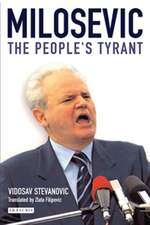A North-South Mind in an East-West World: Chester Bowles and the Making of United States Cold War Foreign Policy, 1951-1969: Contributions to the Study of World History
Autor Richard P. Daueren Limba Engleză Hardback – 29 aug 2005 – vârsta până la 17 ani
Din seria Contributions to the Study of World History
- 27%
 Preț: 463.13 lei
Preț: 463.13 lei - 27%
 Preț: 345.23 lei
Preț: 345.23 lei - 28%
 Preț: 435.48 lei
Preț: 435.48 lei - 38%
 Preț: 436.99 lei
Preț: 436.99 lei - 27%
 Preț: 439.69 lei
Preț: 439.69 lei - 38%
 Preț: 437.67 lei
Preț: 437.67 lei - 27%
 Preț: 440.20 lei
Preț: 440.20 lei - 28%
 Preț: 460.60 lei
Preț: 460.60 lei - 28%
 Preț: 495.69 lei
Preț: 495.69 lei - 28%
 Preț: 436.57 lei
Preț: 436.57 lei - 24%
 Preț: 460.01 lei
Preț: 460.01 lei - 28%
 Preț: 436.22 lei
Preț: 436.22 lei - 27%
 Preț: 443.57 lei
Preț: 443.57 lei - 27%
 Preț: 438.33 lei
Preț: 438.33 lei - 27%
 Preț: 345.74 lei
Preț: 345.74 lei - 28%
 Preț: 438.00 lei
Preț: 438.00 lei - 28%
 Preț: 437.84 lei
Preț: 437.84 lei - 28%
 Preț: 437.84 lei
Preț: 437.84 lei - 38%
 Preț: 440.36 lei
Preț: 440.36 lei - 27%
 Preț: 440.61 lei
Preț: 440.61 lei - 24%
 Preț: 461.87 lei
Preț: 461.87 lei - 28%
 Preț: 437.91 lei
Preț: 437.91 lei - 28%
 Preț: 498.40 lei
Preț: 498.40 lei - 28%
 Preț: 461.28 lei
Preț: 461.28 lei - 35%
 Preț: 464.48 lei
Preț: 464.48 lei - 27%
 Preț: 465.68 lei
Preț: 465.68 lei - 24%
 Preț: 463.55 lei
Preț: 463.55 lei - 28%
 Preț: 460.60 lei
Preț: 460.60 lei - 28%
 Preț: 438.17 lei
Preț: 438.17 lei - 24%
 Preț: 463.05 lei
Preț: 463.05 lei - 28%
 Preț: 460.60 lei
Preț: 460.60 lei - 38%
 Preț: 345.74 lei
Preț: 345.74 lei - 27%
 Preț: 437.67 lei
Preț: 437.67 lei - 24%
 Preț: 462.97 lei
Preț: 462.97 lei - 28%
 Preț: 436.47 lei
Preț: 436.47 lei - 24%
 Preț: 460.93 lei
Preț: 460.93 lei - 27%
 Preț: 440.20 lei
Preț: 440.20 lei - 27%
 Preț: 364.22 lei
Preț: 364.22 lei - 28%
 Preț: 437.40 lei
Preț: 437.40 lei - 28%
 Preț: 344.90 lei
Preț: 344.90 lei - 27%
 Preț: 438.84 lei
Preț: 438.84 lei - 24%
 Preț: 464.40 lei
Preț: 464.40 lei - 27%
 Preț: 463.38 lei
Preț: 463.38 lei - 28%
 Preț: 436.99 lei
Preț: 436.99 lei - 27%
 Preț: 439.34 lei
Preț: 439.34 lei - 27%
 Preț: 345.90 lei
Preț: 345.90 lei - 28%
 Preț: 462.61 lei
Preț: 462.61 lei - 24%
 Preț: 463.97 lei
Preț: 463.97 lei - 19%
 Preț: 462.20 lei
Preț: 462.20 lei - 27%
 Preț: 581.72 lei
Preț: 581.72 lei
Preț: 438.84 lei
Preț vechi: 604.79 lei
-27% Nou
Puncte Express: 658
Preț estimativ în valută:
83.97€ • 87.67$ • 69.50£
83.97€ • 87.67$ • 69.50£
Carte tipărită la comandă
Livrare economică 05-19 aprilie
Preluare comenzi: 021 569.72.76
Specificații
ISBN-13: 9780313320279
ISBN-10: 0313320276
Pagini: 288
Dimensiuni: 156 x 235 x 27 mm
Greutate: 0.58 kg
Editura: Bloomsbury Publishing
Colecția Praeger
Seria Contributions to the Study of World History
Locul publicării:New York, United States
ISBN-10: 0313320276
Pagini: 288
Dimensiuni: 156 x 235 x 27 mm
Greutate: 0.58 kg
Editura: Bloomsbury Publishing
Colecția Praeger
Seria Contributions to the Study of World History
Locul publicării:New York, United States
Notă biografică
Richard P. Dauer has spent his entire 38 year teaching career in independent school education, and currently has an adjunct teaching position at Springfield College.
Cuprins
PrefaceAcknowledgmentsWilsonian Cold WarriorInnocent Abroad: Ambassador to IndiaTroubles at Foggy Bottom: Chester Bowles Confronts the State Department, 1961-1963Firestorm 1961: Third World Crisis Management and Chester BowlesProblems of Containment: Chester Bowles, China, and VietnamReturn to India: The "Lost Opportunity" of Military Aid"Mission Unfulfilled:" Bowlesm Johnson, and the Problem of Indian FoodEpilogueBibliographyIndex
Recenzii
Dauer examines Bowles' (1901-89) public career in US foreign relations as undersecretary of state, ambassador at large, and twice ambassador to India..He explores the reasons for his lack of success by discussing his personality, his access to influential decision makers, the fragmented and bureaucratic structure of US foreign policy making, and various alternatives to Washington's approach to the Third World.
Draws on Bowles's private papers and other sources in a study of how the views of a senior diplomat, undersecretary of state in the Kennedy administration and twice ambassador to India, were largely disregarded by the foreign policy establishment.
Draws on Bowles's private papers and other sources in a study of how the views of a senior diplomat, undersecretary of state in the Kennedy administration and twice ambassador to India, were largely disregarded by the foreign policy establishment.
